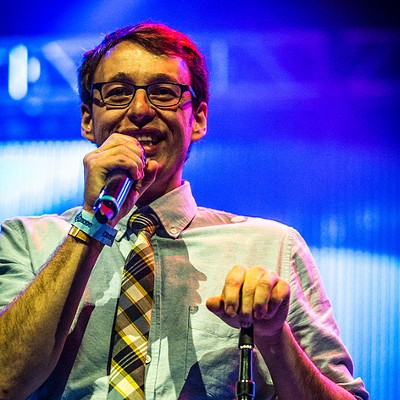Collaborations, of course, are nothing new to rock and pop music, but there is a dearth of late that makes it seem like musicians are starting to see joint efforts as real, genuine meat and potatoes parts of their art, rather than a novelty to engage once or twice in a career. Which has been true in hip-hop more-or-less since its inception.
Among the more prominent collaborations in the indie world, 2009's Dark Was the Night compilation probably stands as the recent high water mark, featuring one productive two-artist song after another. The thing starts off with "Knotty Pine" by David Byrne and Dirty Projectors, and includes songs by Feist and Ben Gibbard, Antony and Bryce Dessner, Cat Power and Dirty Delta Blues, and Conor Oberst and Gillian Welch, among others.
Some of those artists aren't indie by any of the word's many loose definitions, granted. We actually find that phenomenon (Jack White recording with Loretta Lynn, etc) as part of the "indie" world's desire to escape that label, not just rhetorically but musically.
That, however, is a separate issue. As hip-hop becomes the most relevant cultural institution in music, its ideals and methods are trickling backwards into other traditions. It greatly helps that the internet has all but eliminated the financial incentive to limit your cross-pollination. But there's more: Hip-hop showed how occasionally taking a backseat on your own album works musically to invigorate your release, and logistically to interest both artists' fan bases.
It's also true that hip-hop and indie have done plenty of collaboration. Bon Iver and Kanye West, The Roots and Joanna Newsom (among others), Danger Mouse and everyone from Cee-Lo to The Black Keys, and on.
Genre labels are becoming less and less useful as time progresses. There aren't so much movements as pockets lately, as whatever unexplored musical territory is left becomes tiny corners being divided a thousand ways. It makes less and less sense to try and nail anything down, but there are more exciting things happening now than ever before.











